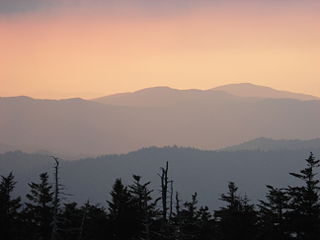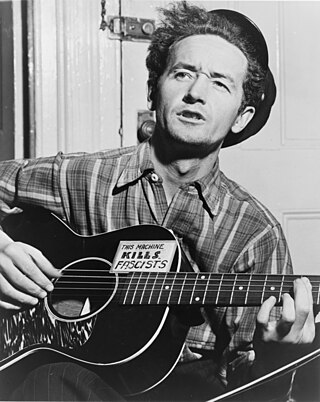Related Research Articles

Peter Seeger was an American folk singer and social activist. He was a fixture on nationwide radio in the 1940s, and had a string of hit records during the early 1950s as a member of The Weavers, notably their recording of Lead Belly's "Goodnight, Irene," which topped the charts for 14 weeks in 1950. Members of the Weavers were blacklisted during the McCarthy Era. In the 1960s, Seeger re-emerged on the public scene as a prominent singer of protest music in support of international disarmament, civil rights, counterculture, workers' rights, and environmental causes.

Judith Marjorie Collins is an American singer-songwriter and musician with a career spanning seven decades. An Academy Award-nominated documentary director and a Grammy Award-winning recording artist, she is known for her eclectic tastes in the material she records, for her social activism, and for the clarity of her voice. Her discography consists of 36 studio albums, nine live albums, numerous compilation albums, four holiday albums, and 21 singles.
The Almanac Singers was an American New York City-based folk music group, active between 1940 and 1943, founded by Millard Lampell, Lee Hays, Pete Seeger, and were joined by Woody Guthrie. The group specialized in topical songs, mostly songs advocating an anti-war, anti-racism and pro-union philosophy. They were part of the Popular Front, an alliance of liberals and leftists, including the Communist Party USA, who had vowed to put aside their differences in order to fight fascism and promote racial and religious inclusiveness and workers' rights. The Almanac Singers felt strongly that songs could help achieve these goals.

The Newport Folk Festival is an annual American folk-oriented music festival in Newport, Rhode Island, which began in 1959 as a counterpart to the Newport Jazz Festival. The festival was founded by music promoter and Jazz Festival founder George Wein, music manager Albert Grossman, and folk singers Pete Seeger, Theodore Bikel, and Oscar Brand. It was one of the first modern music festivals in America and remains a focal point in the expanding genre of folk music. The festival was held in Newport annually from 1959 to 1969, except in 1961 and 1962, first at Freebody Park and then at Festival Field. In 1985, Wein revived the festival in Newport, where it has been held at Fort Adams State Park ever since.

Margarita Mimi Baez Fariña was an American singer-songwriter and activist, the youngest of three daughters of mother Joan Chandos Bridge and Mexican-American physicist Albert Baez. She was the younger sister of the singer and activist Joan Baez.

Rare, Live & Classic is a 1993 box set compilation by Joan Baez. Released on Vanguard, where Baez had recorded her most influential work during the first twelve years of her career, the set also included material from her subsequent record labels, A&M, Columbia and Gold Castle Records, as well as a number of previously unreleased studio and live recordings. Bob Dylan, Bob Gibson, Mimi Fariña, Judy Collins, Odetta and Kris Kristofferson are among those who make guest appearances on the various tracks; also included were two tracks from a never-released album recorded in 1981 with the Grateful Dead.
"Fare Thee Well" is an 18th-century English folk ballad, listed as number 422 in the Roud Folk Song Index. In the song, a lover bids farewell before setting off on a journey, and the lyrics include a dialogue between the lovers.

Richard George Fariña was an American folksinger, songwriter, poet and novelist.

"On Top of Old Smoky" is a traditional folk song of the United States. As recorded by The Weavers, the song reached the pop music charts in 1951. It is catalogued as Roud Folk Song Index No. 414.

Elizabeth "Libba" Cotten was an influential American folk and blues musician. She was a self-taught left-handed guitarist who played a guitar strung for a right-handed player, but played it upside down. This position meant that she would play the bass lines with her fingers and the melody with her thumb. Her signature alternating bass style has become known as "Cotten picking". NPR stated "her influence has reverberated through the generations, permeating every genre of music."
Harold Leventhal was an American music manager. Leventhal's career began as a song plugger for Irving Berlin and then Benny Goodman. While working for Goodman, he connected with a new artist, Frank Sinatra, booking him as a singer for a Benny Goodman event. Leventhal later managed The Weavers, Woody Guthrie, Pete Seeger, Alan Arkin, Judy Collins, Theodore Bikel, Arlo Guthrie, Joan Baez, Mary Travers, Tom Paxton, Don McLean and many others, and promoted major concert events in the genre, thus playing a significant role in the popularization and influence of American folk music in the 1950s and 1960s. He died in 2005 at the age of 86.
"Man of Constant Sorrow" is a traditional American folk song first published by Dick Burnett, a partially blind fiddler from Kentucky. It was titled "Farewell Song" in a songbook by Burnett dated to around 1913. A version recorded by Emry Arthur in 1928 gave the song its current titles.
Carolyn Sue Hester is an American folk singer and songwriter. She was a figure in the early 1960s American folk music revival.
"There Was an Old Lady Who Swallowed a Fly" is a children's rhyme and nonsense song of a kind known as cumulative. Alternative titles include "There Was an Old Lady", "I Know an Old Lady Who Swallowed a Fly", "There Was an Old Woman Who Swallowed a Fly" and "I Know an Old Woman Who Swallowed a Fly". An early documentation of the story appears in English author Dorothy B. King's 1946 book Happy Recollections.
"Turn! Turn! Turn!", also known as or subtitled "To Everything There Is a Season", is a song written by Pete Seeger in 1959. The lyrics – except for the title, which is repeated throughout the song, and the final two lines – consist of the first eight verses of the third chapter of the biblical Book of Ecclesiastes. The song was originally released in 1962 as "To Everything There Is a Season" on the folk group the Limeliters' album Folk Matinee, and then some months later on Seeger's own The Bitter and the Sweet.

The American folk music revival began during the 1940s and peaked in popularity in the mid-1960s. Its roots went earlier, and performers like Josh White, Burl Ives, Woody Guthrie, Lead Belly, Big Bill Broonzy, Richard Dyer-Bennet, Oscar Brand, Jean Ritchie, John Jacob Niles, Susan Reed, Paul Robeson, Bessie Smith, Ma Rainey and Cisco Houston had enjoyed a limited general popularity in the 1930s and 1940s. The revival brought forward styles of American folk music that had in earlier times contributed to the development of country and western, blues, jazz, and rock and roll music.

Festival is a 1967 American documentary film about the Newport Folk Festivals of the mid-1960’s, and the burgeoning counterculture movement of the era, written, produced, and directed by Murray Lerner.
Rainbow Quest (1965–66) was a U.S. television series devoted to folk music and hosted by Pete Seeger. It was videotaped in black-and-white and featured musicians from traditional American music genres such as traditional folk music, old-time music, bluegrass and blues. The show's title is drawn from the lyrics of the song by Seeger "Oh, Had I A Golden Thread".
"The Bells of Rhymney" is a song by the folk singer Pete Seeger, which consists of Seeger's own music accompanying words written by the Welsh poet Idris Davies. Seeger first released a recording of the song on a live album in 1958, but it is the American folk rock band the Byrds' 1965 recording that is the best known version of the song.
"Farewell", also known as "Fare Thee Well", is a song by American singer-songwriter Bob Dylan. Dylan wrote the song in January 1963. He considered it for his third album, The Times They Are a-Changin', but only attempted a few takes during the album's first studio session. Dylan's earlier recordings of "Farewell" found their way onto various bootlegs, and a collection of demos that included the song was released in October 2010 as The Bootleg Series Vol. 9 – The Witmark Demos: 1962–1964.
References
- ↑ Digital Tradition Folk Music Database: link
- ↑ Pedersen, Earl Martin (1990). Three hundred greatest folk songs of the American people. Napoli : Stampa Centro "Aquilone". p. 77.
- ↑ Ravitch, Diane (2006). The English Reader: What Every Literate Person Needs to Know. Oxford University. p. 302. ISBN 0195077296.
- ↑ "I Know Where I'm Going". folksongcollector.com. Retrieved 2018-05-08.
- ↑ Judy Collins – I Know Where I'm Going , retrieved 2018-05-08
- ↑ Burns, Robert (1884). Cunningham, Allan (ed.). The Poetical Works of Robert Burns: With All the Correspondence and Notes. Belford Clarke & Co. p. 234. Retrieved 3 May 2019.
- ↑ Naxos: link Archived 2007-09-29 at the Wayback Machine
- ↑ Seeger, Pete (2 June 2017). "Episode 16 - Mimi and Richard Fariña". Youtube. Archived from the original on 2019-03-09. Retrieved 3 May 2019.
- ↑ Helfer, Sacha. "RICHARD FARINA LIVE RAINBOW QUEST (26 FEVRIER 1966)". Moïcani - L'Odéonie (in French). Retrieved 3 May 2019.
- ↑ Powell, Michael (1986). A Life in Movies. London: Heinemann. pp. 459–460. ISBN 0-434-59945-X.